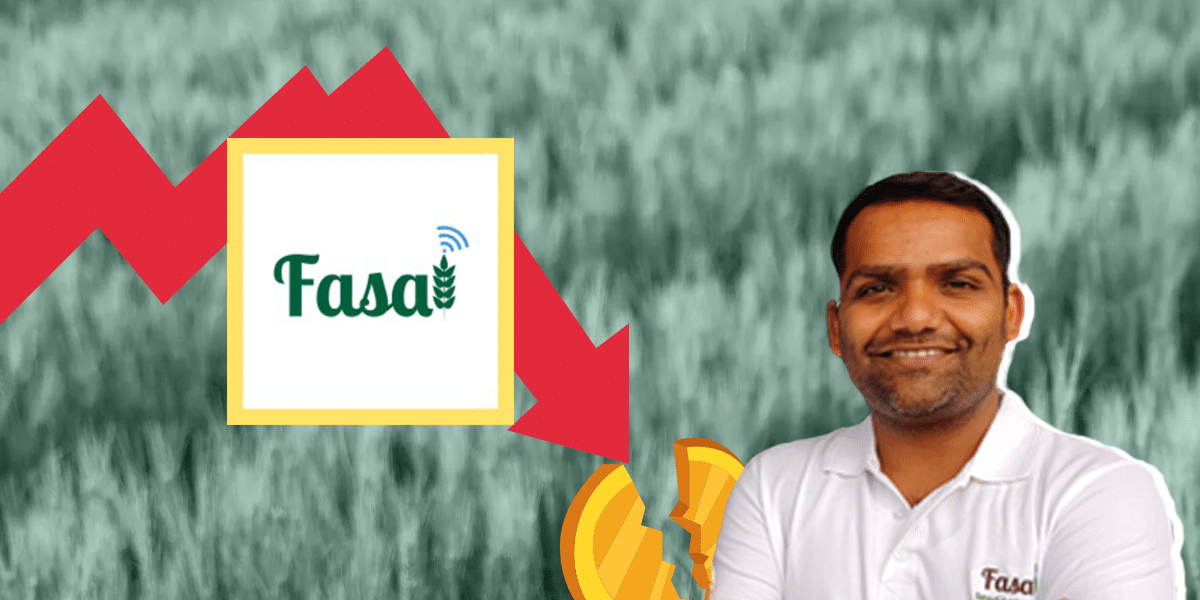In December last year, agritech startup Fasal raised $12 million, led by TDK Ventures and British International Investment (BII). This substantial funding provided a cushion for the six-year-old firm, which has generated only Rs 58 crore since its inception in 2018.
Fasal’s revenue from operations surged by 89%, reaching Rs 34 crore in FY24, up from Rs 18 crore in FY23, as reported in its annual financial statements filed with the Registrar of Companies (RoC).
Founded in 2018, Fasal leverages AI, crop sciences, and IoT to deliver crop-stage-specific intelligence that optimizes resources and enhances productivity. Despite this strong focus on technology, only 9% of the firm’s total revenue, approximately Rs 3 crore, came from these services. The remaining 91% of its revenue was generated from selling fruits.
Revenue Breakdown
FY23: ₹ 18 Cr
FY24: ₹ 34 Cr
To see the complete Revenue Breakdown, visit thekredible.com.
For the agritech model, which eventually evolved into a supply chain, the cost of procurement was naturally the largest cost center, accounting for 47% of the overall expenditure. This cost increased by 83% to Rs 33 crore in FY24.
Employee benefits, legal fees, advertising and business promotion, packaging, forwarding, and other overheads pushed the overall cost to Rs 70 crore in FY24 from Rs 52 crore in FY23.
To see the complete Expense Breakdown, visit thekredible.com.
Expense Breakdown
FY23: ₹ 52 Cr
FY24: ₹ 70 Cr
- Procurement of fruits
- Employee benefits
- Legal fees
- Advertising and business promotion
- Packaging and forwarding charges
- Other overheads
The increase in fruit sales, amounting to Rs 30 crore, helped Fasal contain its losses in FY24. Its ROCE and EBITDA margin were -45.7% and -80%, respectively. On a unit level, the firm spent Rs 2.06 to earn a rupee in the fiscal year ending March 2024.
FY23-FY24 Metrics
FY23 | FY24
EBITDA Margin: -146.32% | -80%
Expense/₹ of Op Revenue: ₹2.89 | ₹2.06
ROCE: -163.53% | -45.71%
To date, Fasal has raised $18 million, including a pre-series round of $4 million in 2021. According to startup data intelligence platform TheKredible, Omnivore is the largest external stakeholder with 15.99%, followed by 3One4 Capital.
To see the complete shareholding pattern, visit thekredible.com.
Many agritech startups follow a similar pattern: starting with a tech-heavy proposition aimed at disrupting farming, only to find it challenging to make significant changes. They then spot an opportunity in price arbitrage between farmer rates and retail rates, turning into sellers. This approach is flawed, as these startups often struggle to negotiate better deals than established traders. Consequently, farm-fresh products sold by these startups can be significantly more expensive than those from local sellers, and they often face quality issues. This pursuit of margins often leads to an expanded product portfolio, quickly burning through funding. While a few startups might succeed, many will face substantial challenges.

